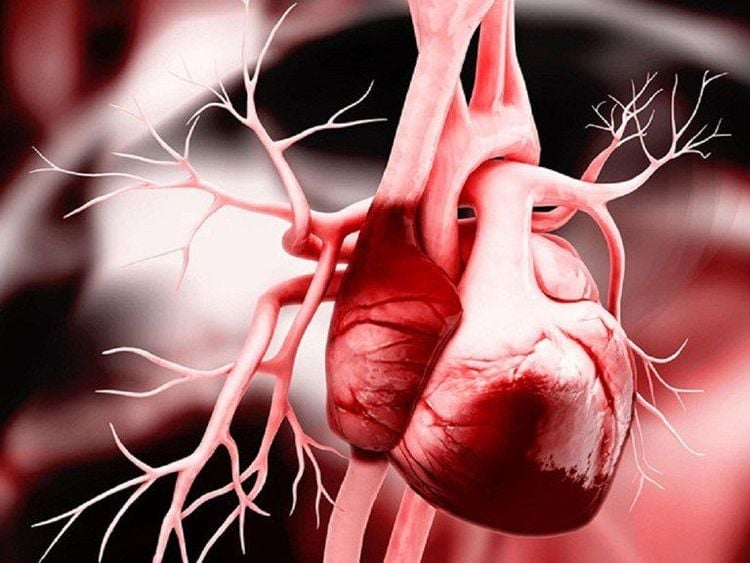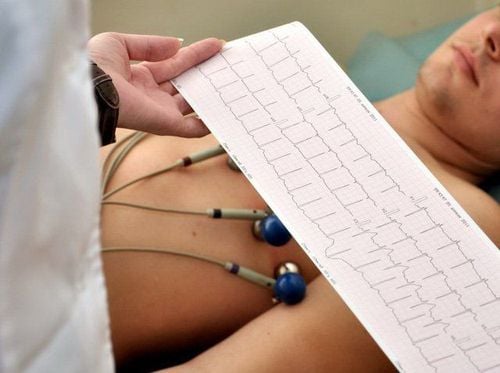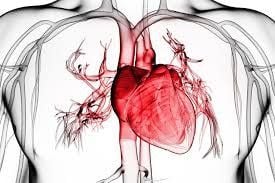This is an automatically translated article.
The creatine phosphokinase test is a biochemical test performed primarily to help diagnose myocardial injury or myocardial infarction.
1. What is creatine phosphokinase (CPK)?
Creatine phosphokinase (CPK) is an enzyme found mainly in cardiac and skeletal muscle and to a lesser extent in brain tissue. The important role of creatine phosphokinase is to control the flow of energy to various tissues in the body, especially in muscle tissue.2. What is the role of the CPK test?
Meaning of CPK test is how to diagnose myocardial infarction. When the patient has an acute myocardial infarction.
CPK is one of the first to increase enzymes, before both transaminases and LDH. From the 4th hour post-infarction (4-8 hours) the total CPK enzyme activity typically increases immediately, and peaks between the 12th and 36th hours after the infarction. During the first 2-3 days, CPK activity is usually elevated and returns to normal by day 4.
At that time, the creatine phosphokinase test is indicated to aid in the diagnosis of rhabdomyolysis. The three enzyme isoforms of CPK that are commonly tested in creatine phosphokinase assay are: CK-BB (CK1), CK-MB (CK2), and CK-MM (CK3). To understand the time, extent and effective treatment plan for doctors often rely on the metabolic properties of these enzymes.

Xét nghiệm CPK được chỉ định khi bệnh nhân bị nhồi máu cơ tim cấp
3. When is the creatine phosphokinase test ordered?
The creatine phosphokinase test is performed to aid in the diagnosis of myocardial injury (myocardial infarction). If your creatine phosphokinase test results show high levels of the enzyme, your skeletal muscle, heart muscle, or brain tissue may be damaged or stressed.
Identification of specific CPK enzymes can help doctors pinpoint the exact type of tissue that is being damaged. The doctor will order the creatine phosphokinase test when it is necessary to diagnose some of the following conditions:
The creatine phosphokinase test is always the first priority for the diagnosis of myocardial infarction; Assess the patient's chest pain; Determine the extent of damage to muscle tissues; Identify polymyositis, and other muscle diseases; The creatine phosphokinase test also helps differentiate between malignant hyperthermia and some postoperative infections.
4. Creatine phosphokinase test results
4.1 Normal results Total CPK concentration:
In female patients: 40 – 150 U/L or 0.67 – 2.50 kat/L. In male patients: 38 – 174 U/L or 0.63 – 2.90 kat/L. CPK MB (CK2): < 10 U/L.
Electrophoresis of CPK isomers gives the result:
CPK BB (CK1) <1% (Under normal conditions very rare). MB CPK (CK2) < 5%. CPK MM (CK3) > 94%.

Bác sĩ đọc kết quả xét nghiệm CPK để chẩn đoán tình trạng bệnh nhân
4.2 Abnormal results Total CPK elevation: Disease or trauma affecting the heart muscle, skeletal muscle, and brain. Increased levels of CK-BB (CK1) : Diseases that have affected the central nervous system or may be due to adenocarcinoma (especially chest and lung), pulmonary infarction may also be suspected in the findings. creatine phosphokinase test results showed increased CK1. Increased levels of CK-MB (CK2) : The patient is in the midst of an acute myocardial infarction, or has recently undergone surgery for an aneurysm; Some other causes are defibrillation, myocardial swelling, ventricular arrhythmias, myocardial ischemia. Elevated CK-MM (CK3) Levels: If creatine phosphokinase test shows elevated CK3 levels, the cause may be burial syndrome, trauma, malignant hyperthermia, myositis, electromyography, intramuscular injection, recent convulsion,..
5. Factors affecting creatine phosphokinase test results
Factors that can affect creatine phosphokinase test results are:
Intramuscular; Exercising too hard or having recently had surgery; CPK levels can vary between men and women, between people of different body weights; Early pregnancy is also likely to lower CPK levels; Stimulants such as alcohol, beer; anesthetics, anticoagulants, or antibiotics can cause a decrease in CPK levels.

Các chất kích thích cũng làm ảnh hưởng đến kết quả xét nghiệm
6. Notes when testing creatine phosphokinase
For the most accurate creatine phosphokinase test results, you should note a few points:
The creatine phosphokinase test is performed on blood serum, so you do not need to fast before the medical staff conducts the collection. blood test. The test is usually done once a day for three days and then once a week then. When conducting blood collection, medical staff may change the area of venipuncture, so you should cooperate to avoid hemolysis. In addition, in order not to affect and support the creatine phosphokinase test results better, you should also record the time and date of performing intramuscular injection as well as the time of blood collection. The above is the most general understanding of the creatine phosphokinase test as well as the meaning of the CPK test and the notes for the patient when indicated for the test.
To register for examination and treatment at Vinmec International General Hospital, please book an appointment on the website for service.
Please dial HOTLINE for more information or register for an appointment HERE. Download MyVinmec app to make appointments faster and to manage your bookings easily.











